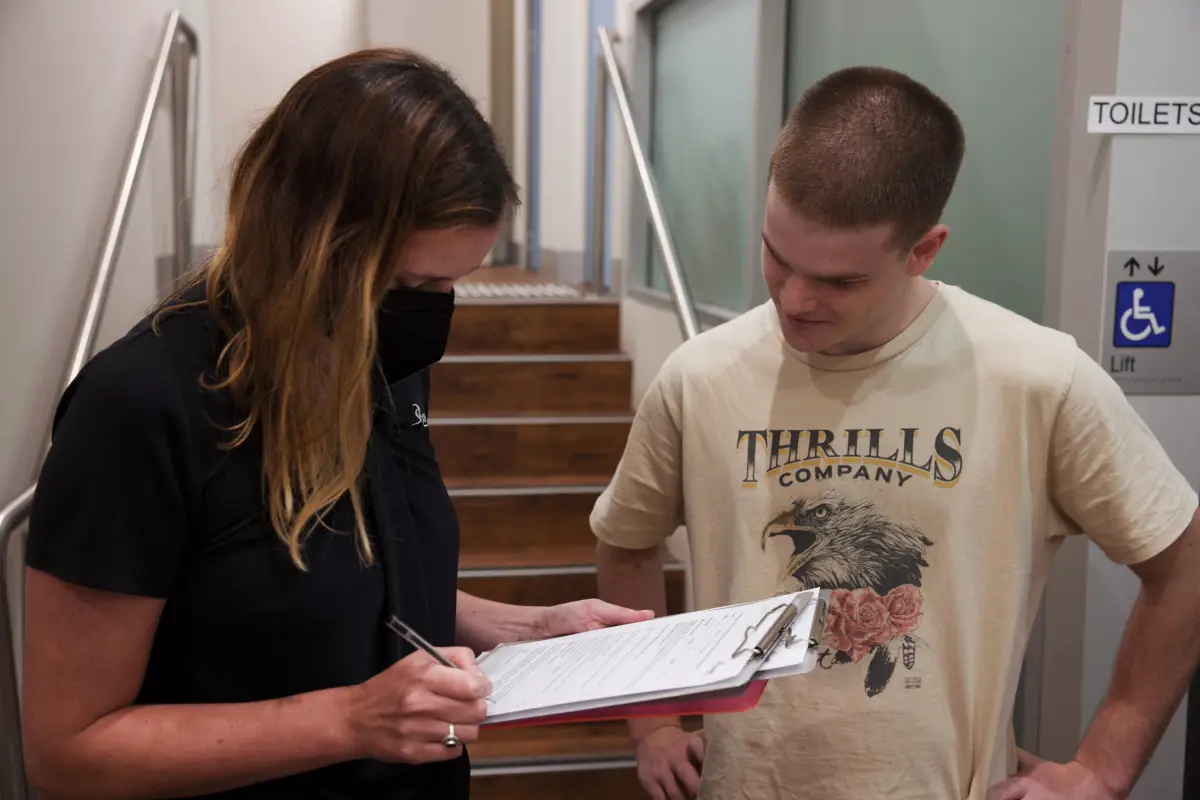How to help your patient get TMS treatment
If you believe your patient could benefit from TMS treatment, encourage your patient to either contact their GP or Psychiatrist for a referral. Or contact us by:
We recommend visiting our healthcare clinicians page for more information about our VisionTMS treatments.
If you would like to review Medicare cover eligibility, please click here.

What happens in the lead-up to my patient’s first treatment course at VisionTMS?
1. Referral
We will review your patient’s TMS referral form from their GP or Psychiatrist and liaise with them if we have any questions.
2. Planning
Our TMS Coordinator ensures your patient’s circumstances are catered to. They guide and prepare them for the next few weeks. We want to plan the most convenient TMS pathway with them.
3. TMS Dosing
A dosing session with a TMS-trained consultant psychiatrist ensures that the TMS machine provides the appropriate dose of magnetic energy for your patient as an individual, as everyone’s optimal level is slightly different.
4. MRI-Guided Brain Mapping
We specialise in enhancing TMS by utilising Brain MRI to improve precision. MRI is a brain scan that uses magnetic fields rather than X-Rays (it uses magnetism like TMS but to map your patient's brain rather than stimulate it). This identifies the precise brain location where to direct the narrow beam of magnetic energy created by the TMS machine to stimulate the relevant brain cells. This process will optimise your treatment individually, as everyone’s brain is slightly different.
5. TMS Course
The initial treatment course is given over 4 weeks (20 sessions).
A brief non-invasive procedure called neuronavigation is provided at the same session as the first treatment. A radiographer will use advanced camera tracking technology to match the surface of your patient’s head with their brain MRI. This will ensure that the TMS magnetic coil is precisely positioned on their scalp for all their treatments.
A further 15 treatments may be spaced out, because gradually weaning may reduce the risk of relapse.
A retreatment course will typically involve a further 15 treatments being offered, as some people relapse, on average 4 months after the initial course.
To prevent relapse, a booster course can be given every few months, administered over 1-2 weeks.